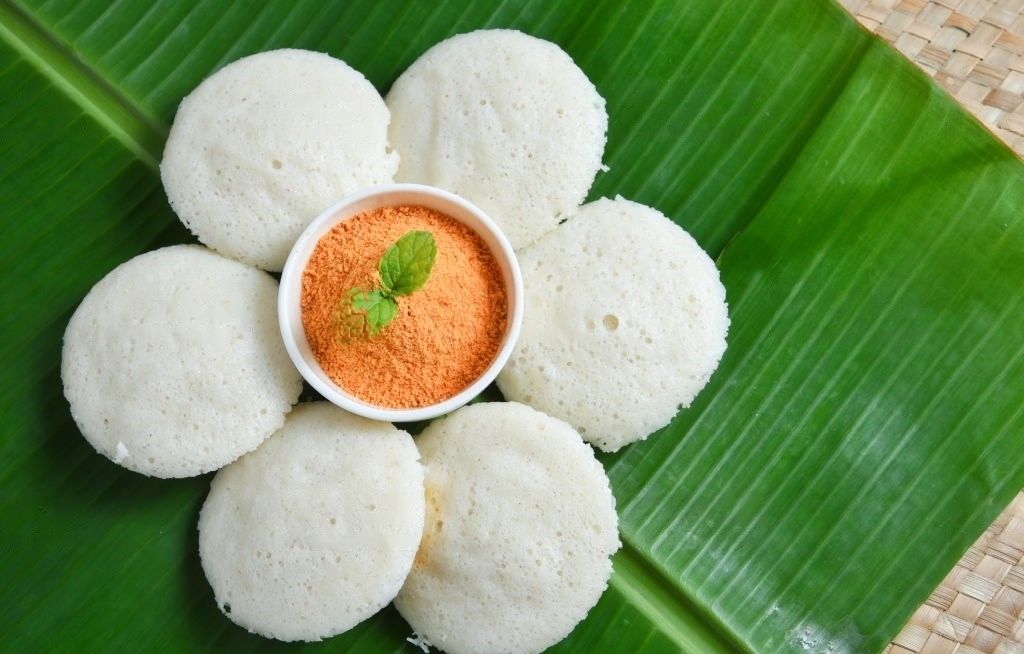The South Indian Secret: Is Idli Good for Weight Loss?
Idli, a popular South Indian dish, offers weight loss benefits due to its low calorie and high fiber content, as well as its fermentation process and nutrient profile.

Weight loss is a journey that requires a balanced approach to nutrition and a careful selection of foods. When it comes to Indian cuisine, one dish that has gained attention in recent years for its potential weight loss benefits is Idli. Idli is a traditional South Indian steamed rice and lentil cake known for its light and fluffy texture. In this blog, we will delve into the scientific research to determine whether Idli can indeed be a helpful addition to your weight loss diet.
Understanding the Benefits of Idli for Weight Loss
1.Low in Calories: Idli is relatively low in calories compared to other popular Indian dishes. It is made primarily from fermented rice and lentils, which undergo a natural fermentation process, reducing the calorie content. This means you can enjoy a satisfying portion of Idli without consuming excessive calories, making it a favorable choice for weight-conscious individuals.
2. High in Fiber: Fiber plays a crucial role in weight loss as it promotes satiety, aids in digestion, and helps regulate blood sugar levels. Idli contains a significant amount of fiber, primarily from the lentils used in its preparation. Consuming fiber-rich foods like Idli can help you feel full for longer, reducing the temptation to overeat and supporting weight loss efforts.
3. Fermentation and Digestibility: The fermentation process involved in making Idli enhances its nutritional profile and digestibility. Fermentation breaks down complex carbohydrates into simpler forms, making it easier for the body to digest and absorb nutrients. The increased digestibility of Idli ensures efficient utilization of nutrients, which can positively impact weight management.
4. Nutrient Content: Idli is a source of several essential nutrients that are beneficial for overall health. It contains B vitamins, iron, and protein from the lentils, which are important for energy production, red blood cell formation, and muscle maintenance. While Idli may not be a significant source of these nutrients alone, when combined with a varied and balanced diet, it contributes to overall nutrient intake while keeping the calorie count in check.
To better understand the potential benefits of including Idli in a weight loss diet, let's consider a few examples:
1.Idli as a Satiating Breakfast: Starting your day with a nutritious and filling breakfast is essential for weight management. Opting for Idli as a breakfast choice can provide a satisfying meal that keeps you energized throughout the morning. The combination of fiber, protein, and complex carbohydrates in Idli helps regulate blood sugar levels and prevents hunger pangs, reducing the likelihood of snacking on unhealthy options later in the day.
2. Idli as a Light Dinner Option: For those aiming to lose weight, choosing a light and nutritious dinner is crucial. Idli serves as an excellent option due to its relatively low calorie content. By replacing heavy and calorie-dense dinners with a portion of Idli, you can reduce your overall calorie intake while still enjoying a satisfying meal. Pairing Idli with a side of sambar (a lentil-based vegetable stew) and chutney can further enhance the nutritional value.
SUMMARY
Idli, a traditional South Indian dish, can indeed be a beneficial addition to a weight loss diet. Its low calorie and high fiber content, along with the benefits of fermentation and nutrient profile, make it a favorable choice. Incorporating Idli as a satiating breakfast or a light dinner option can support weight management efforts while providing essential nutrients. However, it's important to remember that individual results may vary, and weight loss should be approached holistically through a balanced diet and regular physical activity.
Jayti Shah is a Clinical Nutritionist with a master's degree in Clinical Nutrition and Dietetics. She is a member of the Indian Dietetic Association (IDA). Over the last 9 years, she has helped 400 clients in their clinical and weight loss journeys. She works with SocialBoat as a nutrition consultant.
At SocialBoat, we offer custom diet plans and guided workouts to help you achieve your goals in a 360-degree approach. Our gamified experience ensures that you don’t find workouts boring and we reward you for being consistent with your efforts.

REFERENCES
- Slavin JL. "Position of the American Dietetic Association: Health implications of dietary fiber." J Am Diet Assoc. 2008;108(10):1716-1731.
- Sudha V, et al. "Association of breakfast intake with obesity, dietary and physical activity behavior among urban school-aged adolescents in Delhi, India: results of a cross-sectional study." BMC Public Health. 2018;18(1):742.
- National Institute of Nutrition. "Nutritive Value of Indian Foods." Indian Council of Medical Research. Accessed on 8 June 2023. Available at: http://www.indiaenvironmentportal.org.in/files/file/Nutritive%20Value%20of%20Indian%20Foods.pdf.
- Rani N, et al. "Physicochemical and nutritional properties of millet-based fermented foods." Crit Rev Food Sci Nutr. 2018;58(18):3123-3140.
- National Health Service. "The Eatwell Guide." Accessed on 8 June 2023. Available at: https://www.nhs.uk/live-well/eat-well/the-eatwell-guide/.
- Shobana S, et al. "Fermentation and enzymatic treatment of food legumes: A review." Crit Rev Food Sci Nutr. 2013;53(5): 474-485.
